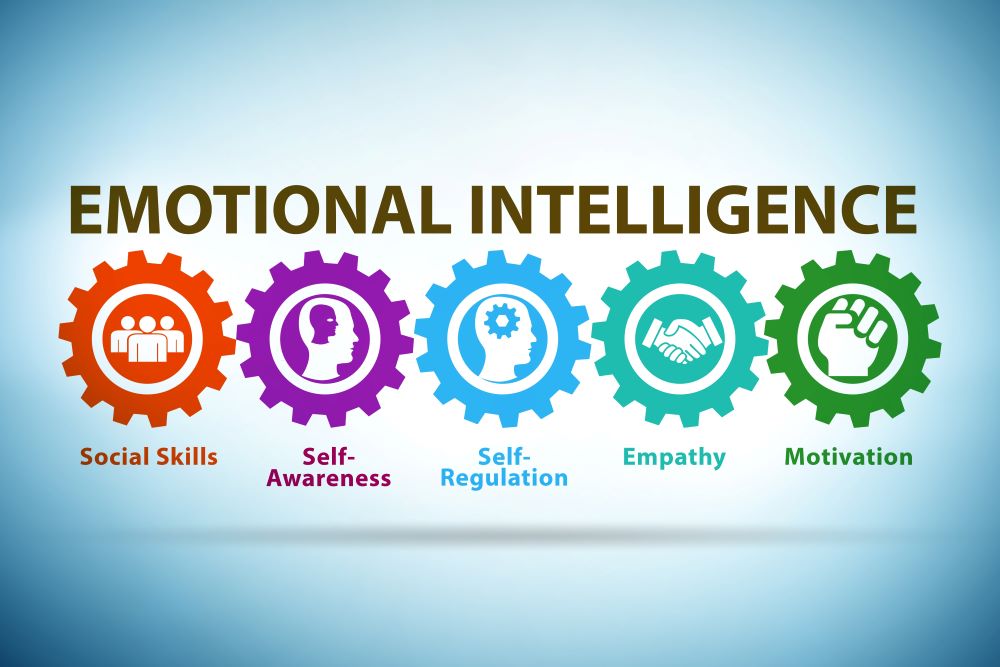Emotional intelligence (EQ) is one of the most powerful skills you can develop for success — not just in your career, but in relationships, decision-making, and inner peace. It helps you understand yourself, connect with others, and navigate challenges with confidence.
In this article, you’ll learn how to improve your emotional intelligence to grow in all areas of life.
What Is Emotional Intelligence?
Emotional intelligence is the ability to:
- Recognize and understand your own emotions
- Manage your emotions effectively
- Understand the emotions of others
- Respond to situations with empathy and clarity
High EQ means more calm, connection, and control — even under pressure.
The 5 Core Components of EQ
1. Self-Awareness
- Recognize your emotional patterns
- Understand your triggers and tendencies
- Tune into your inner dialogue
Tip: Journal daily to track your emotions and reactions.
2. Self-Regulation
- Pause before reacting
- Channel emotions in healthy ways
- Stay calm under stress
Tip: Use deep breathing, mindfulness, or movement to reset.
3. Motivation
- Stay driven by internal goals, not just external rewards
- Persevere through setbacks
- Find purpose in what you do
Tip: Connect daily actions to your long-term vision.
4. Empathy
- Understand what others are feeling
- Listen actively and non-judgmentally
- Offer support and compassion
Tip: Ask open-ended questions and truly listen.
5. Social Skills
- Communicate clearly and respectfully
- Build strong relationships
- Resolve conflicts effectively
Tip: Practice assertive communication — honest, clear, and kind.
Why Emotional Intelligence Matters
People with high EQ:
- Handle stress better
- Make wiser decisions
- Build deeper connections
- Lead and collaborate more effectively
- Have stronger mental health
EQ is often more important than IQ in real-world success.
How to Improve Emotional Intelligence
1. Pause and Name Your Emotions
Put words to what you feel. It builds self-awareness and reduces reactivity.
2. Respond, Don’t React
Pause when triggered. Ask: “What’s the most effective response?”
3. Reflect on Tough Conversations
After conflict, ask:
- What did I feel?
- What did they feel?
- What can I learn?
4. Build Empathy Through Curiosity
Don’t assume — ask. Seek to understand before being understood.
5. Get Feedback
Ask trusted friends or mentors how you handle emotions or communication.
6. Practice Daily Emotional Check-Ins
Each morning or evening, reflect on:
- What did I feel today?
- What did I need?
- How did I respond?
Emotional Intelligence Is a Lifelong Practice
The more you understand and regulate your emotions, the more empowered you become — in every area of life. EQ helps you navigate change, lead with compassion, and create meaningful relationships.
Start with awareness. Add compassion. Practice daily. The growth will follow.
